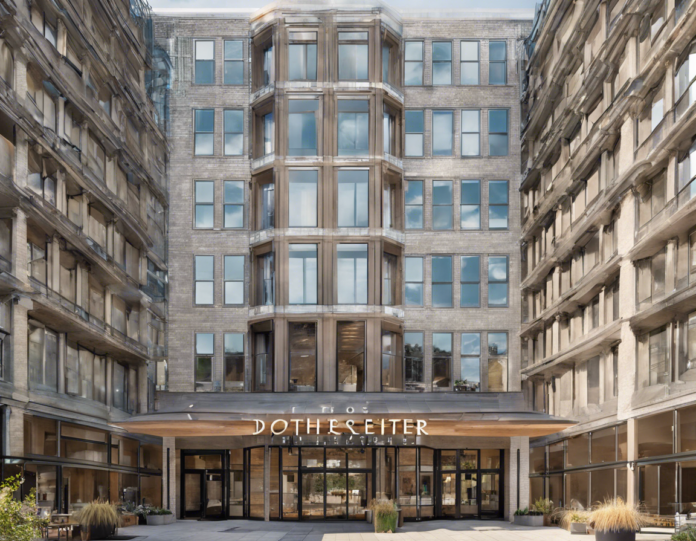Dorchester, a bustling neighborhood in Boston, Massachusetts, is a vibrant tapestry of cultures, histories, and traditions. From its rich architectural heritage to its diverse culinary scene, Dorchester offers a unique fusion of the old and the new, the traditional and the contemporary. In this blog post, we will delve into the ethos of Dorchester, taking a cultural journey through its landmarks, institutions, and community spaces.
Uncovering the Historical Roots
Dorchester boasts a deep-seated history that dates back to the early days of the Massachusetts Bay Colony. Established in 1630, Dorchester is one of Boston's oldest neighborhoods and served as an important center of colonial settlement and trade. Historic landmarks such as the Dorchester Heights Monument and the James Blake House offer glimpses into the neighborhood's storied past, showcasing its role in shaping the history of Boston and the nation.
Embracing Diversity and Inclusion
One of the defining characteristics of Dorchester is its cultural diversity. The neighborhood is home to a dynamic mix of ethnicities, languages, and traditions, creating a melting pot of experiences and perspectives. From the vibrant Vietnamese community in Fields Corner to the thriving Cape Verdean population in Uphams Corner, Dorchester celebrates its multicultural identity through festivals, events, and community gatherings.
Nurturing Artistic Expression
Art and creativity flourish in Dorchester, with a thriving arts scene that encompasses visual arts, music, theater, and more. The Dorchester Art Project and the Strand Theatre serve as hubs for local artists and performers, showcasing the diverse talents that call the neighborhood home. Public art installations, such as murals and sculptures, add visual interest to Dorchester's streets, turning the neighborhood into an open-air gallery.
Preserving Green Spaces
Amidst the urban landscape, Dorchester is also known for its abundance of green spaces. Parks like Franklin Park and Pope John Paul II Park offer residents and visitors alike a retreat from the hustle and bustle of city life. These verdant oases provide opportunities for outdoor recreation, community gatherings, and moments of tranquility in the heart of the neighborhood.
Celebrating Culinary Traditions
Food plays a central role in the cultural tapestry of Dorchester, with a myriad of restaurants, cafes, and markets that reflect the neighborhood's diverse heritage. From Irish pubs serving hearty comfort food to Caribbean eateries dishing out flavorful jerk chicken, Dorchester's culinary scene is a gastronomic adventure waiting to be explored. The annual Taste of Dorchester event showcases the best of the neighborhood's food scene, inviting residents to savor the flavors of the world within a few square miles.
Fostering Community Connections
At the heart of Dorchester's ethos is a strong sense of community. Residents take pride in their neighborhood and actively participate in local initiatives, events, and organizations that promote social cohesion and civic engagement. Neighborhood associations, community centers, and grassroots movements play a vital role in fostering connections and building a sense of belonging among Dorchester's diverse population.
Enriching Educational Opportunities
Dorchester is home to a range of educational institutions that cater to students of all ages and backgrounds. From public schools that provide quality education to community centers that offer enrichment programs, the neighborhood is committed to supporting learning and knowledge-sharing. The Uphams Corner Library and the Dorchester Historical Society are valuable resources for those interested in delving deeper into the history and culture of the area.
Embracing Change and Growth
As Dorchester continues to evolve and grow, the neighborhood grapples with the challenges of gentrification and urban development. Balancing the preservation of its rich cultural heritage with the need for economic revitalization and infrastructure improvement is a delicate dance that Dorchester navigates with care. Community activists, urban planners, and local leaders work together to ensure that the neighborhood's growth is inclusive, equitable, and sustainable.
Frequently Asked Questions (FAQs)
1. What are some must-visit landmarks in Dorchester?
Dorchester boasts several iconic landmarks worth visiting, including the Dorchester Heights Monument, the James Blake House, and the Strand Theatre.
2. How diverse is the population of Dorchester?
Dorchester is known for its cultural diversity, with residents hailing from various ethnic backgrounds, including Vietnamese, Cape Verdean, Irish, and Caribbean communities.
3. What events celebrate the cultural heritage of Dorchester?
The neighborhood hosts a variety of events and festivals throughout the year, such as the Dorchester Vietnamese Festival, the Cape Verdean Festival, and the Taste of Dorchester food event.
4. What green spaces can be found in Dorchester?
Dorchester is home to several parks and natural areas, including Franklin Park, Pope John Paul II Park, and the Dorchester Shores Reservation.
5. How can I get involved in community initiatives in Dorchester?
Residents can engage with the community through local organizations, neighborhood associations, and volunteer opportunities that aim to promote social cohesion and civic engagement.
This exploration of Dorchester's ethos only scratches the surface of the neighborhood's rich cultural tapestry. From its historical roots to its embrace of diversity, Dorchester offers a glimpse into the soul of Boston, reflecting the resilience, creativity, and vibrancy of its residents. Whether you're a visitor looking to experience the sights and sounds of the neighborhood or a resident seeking to deepen your connection to its heritage, Dorchester invites you to embark on a cultural journey unlike any other.
